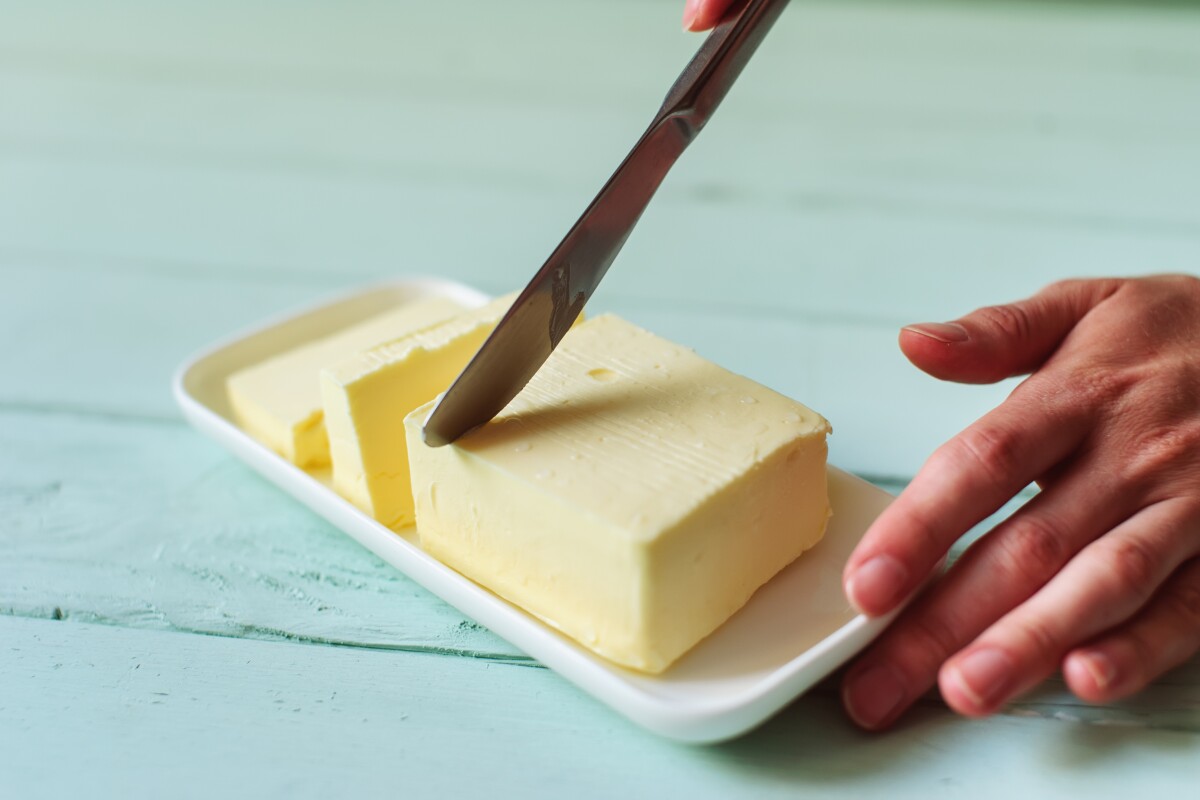
This tells us that it is possible. it also means that margarine can be displaced big time.. It also is unlikely that the process produces proteins.
ultimately every square mile of earth will support cattle in particular just because it acts to increase the carbon content of the soils. Ample surplus butter can then be turned into ghee. If that is still not enough, then we can do this.
what is important is that a wide range of vegetable oils can be reduced in our food system. All good.
Fats from thin air: Startup makes butter using CO2 and water
July 09, 2024
Savor uses chemistry to make 'butter' that tastes just like the real thing
Bill Gates has thrown his weight – and his money – behind a Californian startup that believes it can make a rich, fatty spread akin to butter, using just carbon dioxide and hydrogen. And 'butter' is just the start, with milk, ice-cream, cheese, meat and tropical oils also in development.
The San Jose company, Savor, uses a thermochemical process to create its animal-like fat, which is free of the environmental footprint of both the dairy industry and plant-based alternatives.
"They started with the fact that all fats are made of varying chains of carbon and hydrogen atoms," Gates wrote in a blog post. "Then they set out to make those same carbon and hydrogen chains – without involving animals or plants. They ultimately developed a process that involves taking carbon dioxide from the air and hydrogen from water, heating them up, and oxidizing them to trigger the separation of fatty acids and then the formulation of fat."
Many of us know the stats – according to the United Nations Food and Agriculture Organization (FAO), livestock are responsible for 14.5% of all global greenhouse gas emissions, and animal-fat alternatives that use palm oil contribute to widespread deforestation and biodiversity loss – but also know how delicious dairy products are. So will Gates' enthusiastic support be enough to get people excited about butter made from CO2?
“I couldn’t believe that wasn’t butter”
"The idea of switching to lab-made fats and oils may seem strange at first," Gates wrote. "But their potential to significantly reduce our carbon footprint is immense. By harnessing proven technologies and processes, we get one step closer to achieving our climate goals."
Savor's 'butter' is easily produced and scalable, but convincing people to swap out butter and other dairy products for 'experimental' foods will remain a challenge for the foreseeable future. Gates is hoping, however, that his support will do more than start a conversation.
"The big challenge is to drive down the price so that products like Savor’s become affordable to the masses – either the same cost as animal fats or less," Gates wrote. "Savor has a good chance of success here, because the key steps of their fat-production process already work in other industries.
"The process doesn’t release any greenhouse gases, and it uses no farmland and less than a thousandth of the water that traditional agriculture does," he added. "And most important, it tastes really good – like the real thing, because chemically it is."
No comments:
Post a Comment